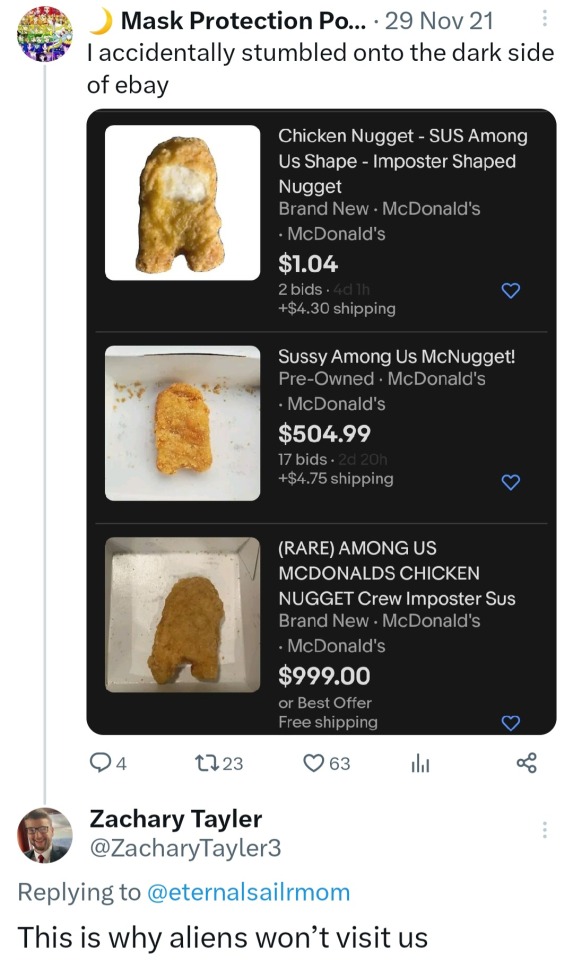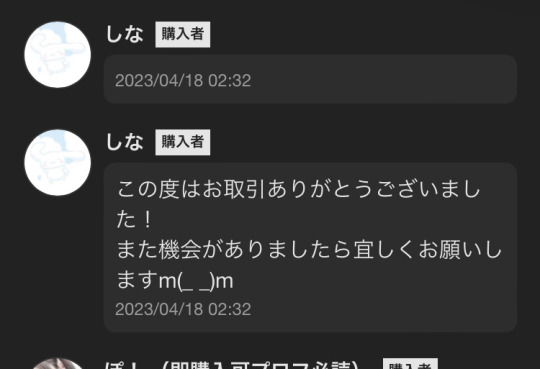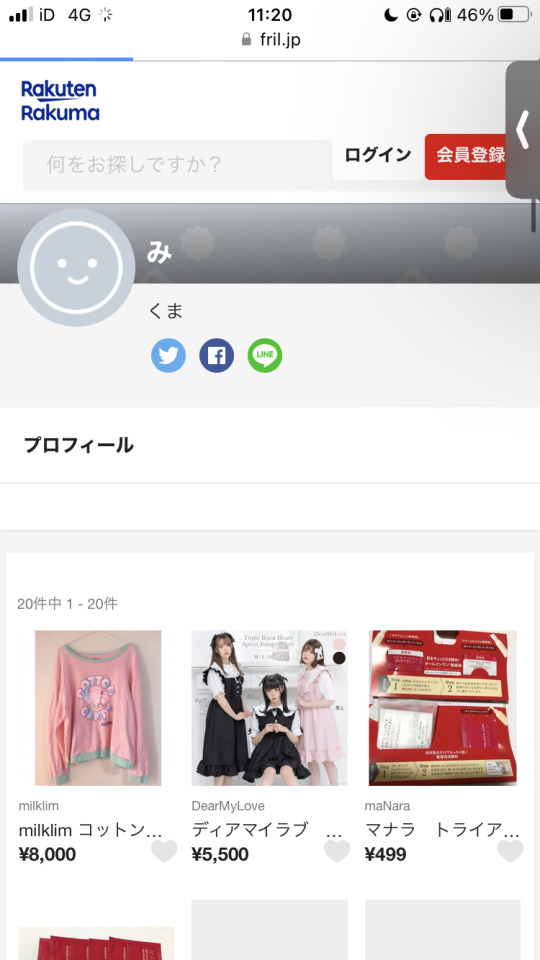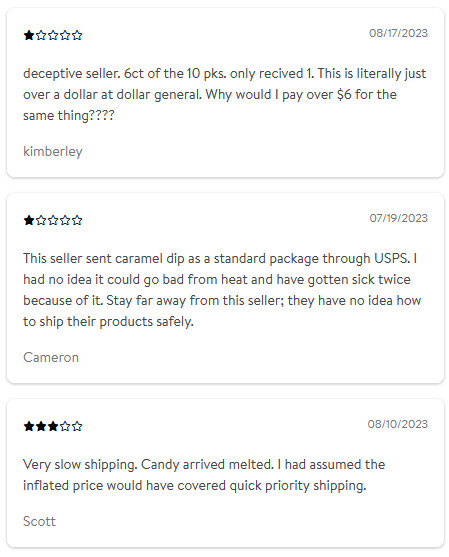#scalping
Text
Ok. Thought this was common knowledge. It is not. #Scalping was a stereotype pushed onto #Nativeamericans, but, it was white people who did it for profit. #themoreyouknow
5 notes
·
View notes
Text
Hair Cutting (Uruk/Orc Headcanons SoW)
Was talking to @space-arsonist about this and thought to bring it up here too
xxx
Once, hair cutting wasn't always a source of shame or grief for uruks and orcs alike. It was a sign of change and growth, be it integrating into new clans, reaching new life milestones, or for ceremonial purposes.
As life became harsher for the lot of them, it became more and more difficult for uruks and orcs to even grow healthy hair to grow out, much less cut. Having a healthy head of hair meant that you had resources, and if that hair was cut, it was due to outside influence and not due to individual choice.
Slaves would have their heads shaved regardless of the amount of hair they had or didn't have, hair would be cut for uruks or orcs deemed traitorous or banished from their clans, hair (and/or scalps) are even a common trophy taken by victorious warriors.
If it's something that can be taken away, it can and will be in Mordor for one reason or another.
(My personal OCs and their hair(cuts) under the cut)
Hûra
- Both of his clans cut his hair at various times during his youth. It was done as a form of humiliation and control along with a means to make money, as Hûra’s hair was strong enough to both string bows and to be used as nearly unbreakable ties and/or as a garroting wire.
- His hair was cut to nearly ear-length by Khrosh.
- He cut a few locks of his hair off with Takra when they officially became blood brothers.
- He cut some of his hair when Gogat officially became his son, and he did it again when Dûsh, Mâku, Lûga and Grisha joined the family too (he made charms woven with his family’s hair).
- He cut his hair to his elbows after the war ended and never cut it again.
Takra
- Her hair was cut off several times by superior Uruks at her outposts when she was very young.
- It was cut once by her Marauder captain when she first sold herself to him.
- It’s been cut numerous times by her “clients”, usually resulting in her hair being short and choppy most of the time.
- She cut it when Hûra reunited with her very short so it would grow back both healthy and at the same length.
- She cut a few locks when she became blood brothers with Hûra.
- She cut it when her children came into her life (Hûra created charms with her hair as well).
- She cut her hair short when Gogat returned from prison and regrew it alongside her sons and only ever cut it to trim dead ends off afterwards.
Mâku
- His hair was long straight out of the vat (think nearly to his elbows) so his Dark clan cut it to just above his shoulders after recruiting him. He’s like his father and it grew back extraordinarily quickly every time it was cut.
- He cut it when he broke away from his clan.
- He cut several locks off when he became a part of his family.
- He cut his hair with his father at the end of the war, back to his elbows like when he was a pup.
- He cut a few locks off when his parents died and placed the hair with them when they were cremated/buried and did the same when his brothers and sister passed.
Pushkrimp
- His hair was cut when nearly to his ears when he was banished from his clan. It was done specifically to cut the clan braids from his hair.
- Pushkrimp periodically had breakdowns after drinking where he would chop his hair off sloppily and rarely tidied it up after the fact.
- He cut his hair when he vowed to stop drinking, cutting as short as the day he was banished.
- Pushkrimp cut a few locks when he became blood brothers with Horza.
- He cut a few locks when he reunited with Zog and learned of Zunn’s existence.
Norûk
- His hair was long out of the vat (past his shoulder) and it was cut choppily short up to his ears when he was sent off.
- Ar-Beka cut it after he adopted Norûk, as it was matted and unmanageable and he refused to bathe for many months due to his fear of water.
- He cut a few locks and gave them to Ay-Yaruk when he went off to study in the West.
- He cut a few locks when he married.
- He cut a few locks as he was in his twilight years and gave them to his father, Zunn, his children and his brother.
Khrosh
- He’s only cut it once: when he made a mockery of the charms that Hûra would make his family out of their hair. He wove a few locks of his hair with the hair he cut from Hûra’s head.
Grishnâkh
- He kept his hair relatively short most of his life for hygiene reasons.
- It grew long when he was recovering from being attack by a caragor but again cut it short, above his shoulders.
Horza
- Had hair past his elbows when he was enslaved.
- Had his hair shorn off while a slave.
- It always tried to grow back but it was patchy due to poor conditions.
- Never kept his head shaved in spite of his poor hair condition as a slave, as he couldn’t bare the thought of doing it himself.
- Only allowed it to be cut twice, the first when with the Monks so it could grow back healthy.
- The second was when he became blood brothers with Pushkrimp.
#headcanons#lotr#shadow of war#middle earth shadow of mordor#middle earth shadow of war#uruks#orcs#my ocs#hair cutting#scalping#slavery#trauma
10 notes
·
View notes
Video
youtube
Let's talk about doll scalping! FT Harley Limestone Shadow High & Monst...
#youtube#Dolls#Fashion Dolls#Shadow High#Rainbow High#Monster High#Harley#Harley Limestone#Skullector#Scalping#Elvira#elvira mistress of the dark#Elvira doll#Chuckie#Tiffany#Chuckie and Tiffany#Child's Play
13 notes
·
View notes
Text
im crying

She won't let me scalp her sibling like 😒
Cmon dude it's not that hard
3 notes
·
View notes
Text
CLAIM 40% TRADABLE BONUS NOW
Xtreamforex is offering Get 40% Tradable Bonus this offer is limited period. You have to only register & add amount in your wallet to enjoy the benefit of Tradable Bonus.

#investment#knowledge#forex#makemoney#motivated#wallstreet#scalping#financial#xtreamforex#money#cryptocurrency#invest#news#market#dollar#usd#cad#stocks#business#bonus
29 notes
·
View notes
Note
Thoughts on Majora’s Mask it’s Probaly the most different game out of the OOT style Zelda games it’s also a game that Probaly should’ve been a disaster with the time limit they had but most of what makes it engaging for me was created because it was rushed
Majora's Mask is a game I wanted to experience but never have. Fell into that nefarious category of "When I have time" and that time never seems to manifest. I put like an hour into the N64 version once, like, more than ten years ago. I'm not sure I ever got through the Deku Scrub tutorial.
Nowadays I'd want to play it on 3DS, but that thing has entered The Phantom Zone where I'd want to play it on a New 3DS (since it takes advantage of that), which I guess specifically means a New 3DS XL, which are extremely expensive because scalpers do the thing that they do with newly retired things and are charging $300+ for something that should be, realistically, $75. Thanks, Rick & Morty.
I realize I can probably emulate it nowadays but 3DS emulation is kind of all over the place in my opinion. There's lots of little gaps in what Citra supports, to the point where first party titles like Star Fox 64 3D have massive performance problems. I haven't checked in a while but I remember New Game+ in Super Mario 3D Land being fatally busted, too.
So I do not trust 3DS emulation. It's messed up that the Wii U version of Smash Bros. 4 emulates better than the 3DS version, and it kind of never got any better, either.
And, like, you gotta mess with ROM encryption and all that other stuff, too. Just a total mess.
So I have no thoughts about Majora's Mask. I have actually avoided knowing about what happens in around 90% of that game so far, so all I really know is that "it's weird and dark" and "it's one of the rare few games Nintendo actually rushed out really quickly."
5 notes
·
View notes
Text

We could've had cosmic neighbors by now but no one wants to indulge our bullshit
#funny#lol#tweet#this is why aliens avoid us#ebay#ebayfinds#chicken nuggets#among us#amogus#sus#overpriced#scalpers#scalping#why are we like this#why
11 notes
·
View notes
Text
Cách đánh Scalping vàng hiệu quả

Scalping Vàng là chiến lược giao dịch vàng theo kiểu lướt sóng. Scalping là giao dịch trong thời gian ngắn, dựa vào biến động giá trong thời gian ngắn, bán với giá cao để có lợi nhuận. Khi bạn đầu tư vào chỉ số vàng trên các sàn giao dịch thì Scalping vàng là phương pháp giúp mang lại lợi nhuận tối ưu nhất. Tuy các lần giao dịch chỉ thu về ít lợi nhuận, nhưng khi tổng hợp lại các lần giao dịch, sẽ là một tổng lợi nhuận vô cùng lớn. Dù vậy, điều này chỉ đúng nếu mỗi lần đánh Scalping vàng đều đúng. Do vậy, người đánh scalping cần phải quan sát thị trường liên tục để tìm điểm vào lệnh đẹp. Ngoài ra, với mỗi lần giao dịch cũng cần trả một khoản phí giao dịch. Vậy nên, người đánh Scalping vàng cần có một kế hoạch cụ thể, đặt lệnh đúng thời điểm, và biết cách phân tích thị trường.
Xem chi tiết tại: https://karldarin.com/scalping-vang/
#scalping #gold #vang #scalpingvang #karldarin
2 notes
·
View notes
Text
Scalping, when used in reference to trading in securities, commodities and foreign exchange, may refer to eithera legitimate method of arbitrage of small price gaps created by the bid–ask spread, ora fraudulent form of market manipulation.
Arbitrage
Scalping, in the arbitrage sense, is a type of trading in which traders try to open and close positions in very short periods of time in markets such as foreign exchange and securities with the aim of making a small profit from the trades.[1][2]
How scalping works
Scalping is the shortest time frame in trading and it exploits small changes in currency prices.[3] Scalpers attempt to act like traditional market makers or specialists. To make the spread means to buy at the Bid price and sell at the Ask price, in order to gain the bid/ask difference. This procedure allows for profit even when the bid and ask don't move at all, as long as there are traders who are willing to take market prices. It normally involves establishing and liquidating a position quickly, usually within minutes or even seconds.
The role of a scalper is actually the role of market makers or specialists who are to maintain the liquidity and order flow of a product of a market.
The profit for each transaction is based only on a few bips (basis points), so scalping is typically conducted when there are large amounts of capital and high leverage or there are currency pairs where the bid–offer spread is narrow. [4]
Principles
Spreads are bonuses as well as costs – Stock Markets operate on a bid and ask based system. The numerical difference between the bid and ask prices is referred to as the spread between them. The ask prices are immediate execution (market) prices for quick buyers (ask takers); bid prices for quick sellers (bid takers). If a trade is executed at market prices, closing that trade immediately without queuing would not get the seller back the amount paid because of the bid/ask difference. The spread can be viewed as trading bonuses or costs according to different parties and different strategies. On one hand, traders who do not wish to queue their order, instead paying the market price, pay the spreads (costs). On the other hand, traders who wish to queue and wait for execution receive the spreads (bonuses). Some day trading strategies attempt to capture the spread as additional, or even the only, profits for successful trades.
Lower exposure, lower risks – Scalpers are only exposed in a relatively short period, as they do not hold positions overnight. As the period one holds decreases, the chances of running into extreme adverse movements, causing huge losses, decreases.
Smaller moves, easier to obtain – A change in price results from imbalance of buying and selling powers. Most of the time within a day, prices stay stable, moving within a small range. This means neither buying nor selling power control the situation. There are only a few times which price moves towards one direction, i.e. either buying or selling power controls the situation. It requires bigger imbalances for bigger price changes. It is what scalpers look for – capturing smaller moves which happen most of the time, as opposed to larger ones.
Large volume, adding profits up – Since the profit obtained per share or contract is very small due to its target of spread, they need to trade large in order to add up the profits. Scalping is not suitable for large-capital traders seeking to move large volumes at once, but for small-capital traders seeking to move smaller volumes more often.
Different parties and spreads
Whenever the spread is made one (or more) party must pay it (paying the cost to receive some value on completing the transaction quickly) and some party (or parties) will receive that money as profit.
Who pays the spreads (costs)
The following traders pay the spreads:
Momentum traders on technicals – These traders look for fast movements hinted from quotes, prices and volumes, charts. When a real breakout occurs, price becomes volatile. A sudden rise or fall may occur within any second. They need to get in quick before the price moves out of the base.
Momentum traders on news – When news breaks out, the price becomes very volatile as many people watching the news will react at more or less the same time. A trader needs to take the market prices immediately as the opportunity may vanish after a second or so.Cut losses on market prices – The spread becomes a cost if the price moves against the expected direction and the trader wishes to cut losses immediately on market price.Who receives the spreads (bonuses)
The following traders receive the spreads:
Individual scalpers – They trade for spreads and can benefit from larger spreads.Market makers and specialists – People who provide liquidity place their orders on their market books. Over the course of a single day, a market maker may fill orders for hundreds of thousands or millions of shares.
Spot foreign exchange (exchanges of foreign currencies) brokers – They do not charge any commissions because they make profits from the bid/ask spread quotes. On July 10, 2006, the exchange rate between Euro and United States dollar is 1.2733 at 15:45. The internal (inter-bank dealers) bid/ask price is 1.2732-5/1.2733-5. However the foreign exchange brokers or middlemen will not offer the same competitive prices to their clients. Instead they provide their own version of bid and ask quotes, say 1.2731/1.2734, of which their commissions are already "hidden" in it. More competitive brokers do not charge more than 2 pips spread on a currency where the interbank market has a 1 pip spread, and some offer better than this by quoting prices in fractional pips.
Factors affecting scalping
Liquidity – The liquidity of a market affects the performance of scalping. Each product within the market receives different spread, due to popularity differentials. The more liquid the markets and the products are, the tighter the spreads are. Some scalpers like to trade in a more liquid market since they can move in and out of large positions easily without adverse market impact. Other scalpers like to trade in less liquid markets, which typically have significantly larger bid–ask spread. Whereas a scalper in a highly liquid market (for example, a market maintaining a one-penny spread) may take 10,000 shares to make a 3 cent gain ($300), a scalper in an illiquid market (for example, a market with a 25 cent spread) may take 500 shares for a 60 cent gain ($300). While there is theoretically more profit potential in a liquid market, it is also a "poker game" with many more professional players which can make it more difficult to anticipate future price action.
Volatility – Unlike momentum traders, scalpers like stable or silent products. Imagine if its price does not move all day, scalpers can profit all day simply by placing their orders on the same bid and ask, making hundreds or thousands of trades. They do not need to worry about sudden price changes.
Time frame – Scalpers operate on a very short time frame, looking to profit from market waves that are sometimes too small to be seen even on the one-minute chart. This maximizes the number of moves during the day that the scalper can use to make a profit.
Risk management – Rather than looking for one big trade, the way a trend trader might, the scalper looks for hundreds of small profits throughout the day. In this process the scalper might also take hundreds of small losses during the same time period. For this reason a scalper must have very strict risk management that never allows losses to accumulate too much.
7 notes
·
View notes
Text
Cut down the center of Whumpees scalp.
Grab a fistful of hair from either side.
And pull in opposite directions.
See which piece tears off more.
21 notes
·
View notes
Text
A conditioner that keeps your hair smooth, shiny, and friss-free so you can have a good hair day everyday. Shop today!
#scalping#scalp#scalpcare#scalptreatment#scalper#scalptherapy#naturalhair#allhairtypes#conditioner#hairconfidence#hairlosshelp#hairreplacement#hairclinic#hairlossawareness#hairrestoration#hairrepair#hairstyles#hair#hairwigstore#sinkorhair
2 notes
·
View notes
Text
The user Shina (しな) on Mercari ( formally Nashi) has scalped another cotton candy sweater again. I wondered how long they’d wait to post it to their frill after they left feedback on Mercari. It didn’t take long at all



2 notes
·
View notes
Text

8 notes
·
View notes
Text
Ok some scalping is just ridiculous. Selling just the body for $50 more than the complete doll plus shipping? Be careful on the secondhand market y’all
~Anonymous
13 notes
·
View notes
Note
Juat curious if you have any thoughts on the Taylor Swift ticketmaster thing from months back and how it went down and also people calling out tickermaster's monopoly?
Would you believe I've never gone to a concert before? Never had the money, never had the access. I am very in the dark as to what Ticketmaster did, outside of the fact I've heard friends and others on the internet complain about Ticketmaster for years and how they only seem to be feeding the scalping market more than anything else. I can see their Consumer Affairs profile has a lot of unhappy people.
Given that the Ticketmaster app advertises "buy and sell your tickets" I'm assuming they went in the same direction as every other major online retailer and opened themselves up to letting users resell their items online? Leading to the proliferation of people buying up huge stocks of items and then flipping them for a higher price.
I hate that stuff. If you were to ask me, that's a top ten reason for the inflation we're currently experiencing. Covid got people to realize they could buy up stuff like hand sanitizer and toilet paper and resell it online, and now suddenly they do that with all kinds of stuff. I run into it all the time when grocery shopping, because I do a lot of my grocery shopping online.
Jiffy brownie mix was normally $0.98, but I go looking for it now and some reseller wants me to pay him over $6 for it.

You think Walmart or whoever cares? Of course not. They take the scalper's money (for the initial sale) and then get a cut of what the scalper sells it for (the resell). A successful scalper is a double dip for the retailer. They have a financial incentive to not only allow scalping, but maybe to even encourage it.
And what do you think happens when the manufacturer sees people paying $7 for ketchup? Well, golly, that's now lost revenue, isn't it? Supply and demand, mother effer. "If people are going to pay Johnny Assclown $7 for ketchup, they should be paying us $7 for ketchup."

Out of everyone in this equation, the resellers care the least. Everybody suffers except for those filling their pockets.
I dunno what happened with Taylor Swift but I'm willing to bet it's the same garbage that's making everyone's lives miserable in the rest of the world.
Taylor Swift is cute tho
4 notes
·
View notes
Audio
SCALPING’s Void
#SCALPING#void#houndstooth#music#electronic#rock#industrial#metal#ebm#techno#post punk#triphop#bandcamp
2 notes
·
View notes